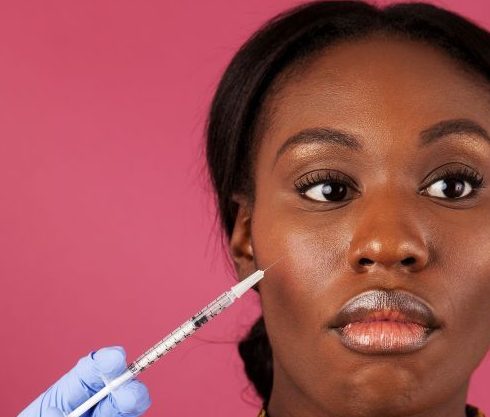Prostate Cancer: All You Need To Know
Prostate cancer is one of the leading causes of death in men. But this shouldn’t scare you. If detected early, it is not fatal. Over the years, we’ve seen many men bounce back from it – Charlie Wilson, Robert De Niro, Ben Stiller, Warren Buffet, to name a few. Here are the frequently asked questions about the disease.
How common is prostate cancer?
Prostate cancer is the most common non-skin cancer in men and the fourth most common tumour diagnosed worldwide. Black men are over 75% more likely to develop prostate cancer than Caucasian men and are more than twice as likely to die from the disease.
A man is more likely to develop prostate cancer than he is to develop colon, kidney, melanoma, and stomach cancers combined.
Are some men more likely to be diagnosed with prostate cancer?
The chance of being diagnosed with prostate cancer increases rapidly after age 50. About 6 in 10 of all prostate cancers are diagnosed in men over the age of 65.
Prostate cancer is among the most heritable of the major human cancers; It is estimated that more than half (57%) of prostate cancer risk is due to genetic factors.
How curable is prostate cancer?
As with all cancers, “cure” rates for prostate cancer describe the percentage of patients likely remaining disease-free for a specific time. In general, the earlier the cancer is caught, the more likely it is for the patient to remain disease-free.
Because approximately 90% of all prostate cancers are detected in the local and regional stages, the cure rate for prostate cancer is very high—nearly 100% of men diagnosed at this stage will be disease-free after five years. By contrast, in the 1970s, only 67% of men diagnosed with local or regional prostate cancer were disease-free after five years.
What are the symptoms of prostate cancer?
If the cancer is caught at its earliest stages, most men will not experience any symptom. Some men, however, will experience symptoms such as frequent, hesitant, or burning urination, difficulty in having an erection, or pain or stiffness in the lower back, hips or upper thighs.
Because these symptoms can also indicate the presence of other diseases or disorders, men who experience any of these symptoms will undergo a thorough work-up to determine the underlying cause of the symptoms.
If there are no symptoms, how is prostate cancer detected?
Screening for prostate cancer can be performed in a physician’s office using two tests: the PSA (prostate-specific antigen) blood test and the digital rectal exam (DRE).
How is prostate cancer treated?
There are a wide variety of treatment options available for men with prostate cancer, including surgery, radiation therapy, hormone therapy and chemotherapy, any or all of which might be used at different times depending on the stage of disease and the need for treatment.
Consultation with all three types of prostate cancer specialists—a urologist, a radiation oncologist and a medical oncologist—will offer the most comprehensive assessment of the available treatments and expected outcomes. For men with advanced disease or an increased risk due to family history or lifestyle, precision treatments based on genetic screening may be recommended.
What can I do to help prevent prostate cancer?
- Eat fewer calories and exercise more so that you maintain a healthy weight.
- Try to keep the quantity of fat you get from red meat and dairy products
- Watch your calcium intake. take supplemental doses far above the recommended daily allowance. Some calcium is OK, but avoid taking more than 1,200 mg per day.
- Eat more fish – evidence from several studies suggest that fish can help protect against prostate cancer because they have “good fat,” particularly omega-3 fatty acids. Avoid trans-fatty acids (for example, in margarine).
- Incorporate cooked tomatoes (prepared with olive oil), which may be beneficial, and cruciferous vegetables (like broccoli and cauliflower) into many of your weekly meals. Soy-based foods and green tea are also potential dietary components that may be helpful.
- Avoid smoking for many reasons. Drink alcohol in moderation, if at all.
- Seek medical treatment for stress, high blood pressure, diabetes, high cholesterol, and depression. Treating these conditions may save your life and will improve your survivorship with prostate cancer.
- Avoid over-supplementation with megavitamins. While a multivitamin is not likely to be harmful, you probably don’t need it if you follow a healthy diet with lots of fruits, vegetables, whole grains, fish, and healthy oils. Ask your doctor about herbal supplements as some may harm you or interfere with treatment.
- Relax and enjoy life. Reducing stress in the workplace and home will improve your survivorship and lead to a longer, happier life.
- For men 40 or older, or those with a family history of prostate cancer, it is best to discuss the risks and benefits of screening with a PSA test and, if indicated, a rectal examination, with your doctor.
What should you do if you or someone you love has just been diagnosed with prostate cancer?
There are many options for treatment at all stages of prostate cancer. If you are diagnosed with prostate cancer, make sure to get on the “right track”: that is, the right team, the right tests, and the right treatments, right from the start.
Self-identifies as a middle child between millennials and the gen Z, began writing as a 14 year-old. Born and raised in Lagos where he would go on to obtain a degree in the University of Lagos, he mainly draws inspiration from societal issues and the ills within. His "live and let live" mantra shapes his thought process as he writes about lifestyle from a place of empathy and emotional intelligence. When he is not writing, he is very invested in football and sociopolitical commentary on social media.






